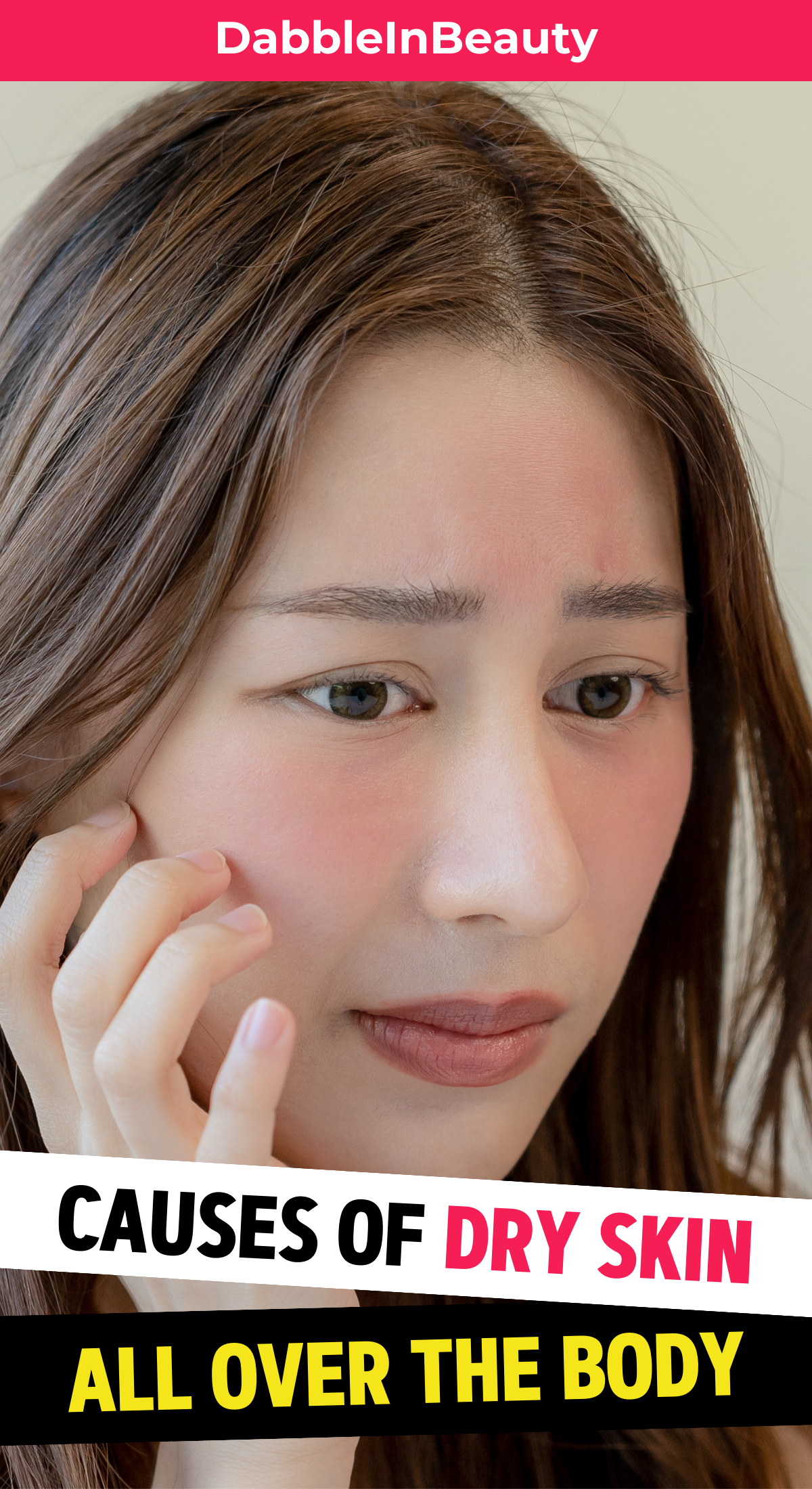Dry skin is a common problem that can lead to various other skin problems, including flaking, redness, and itching. While it can be a nuisance, dry skin is usually not severe. However, having dehydrated skin may indicate an underlying medical condition.
Causes:
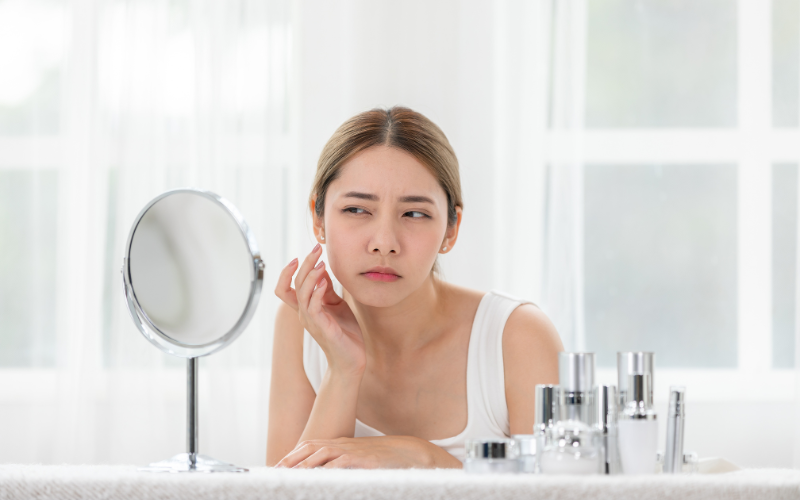
There are many possible causes of dry skin. Climate, hormones, medications, and certain health conditions can contribute to dry skin.
- Climate: Dry skin is more common in colder weather because cold air holds less moisture than warm air. Indoor heating can also contribute to dry skin.
- Hormones: Fluctuations in hormone levels can cause dry skin. This is especially true for women during menopause and pregnancy.
- Medications: Certain medications can cause dry skin as a side effect. These include antihistamines, diuretics, and some acne medications.
- Health conditions: Some health conditions can cause dry skin. These include diabetes, hypothyroidism, and psoriasis.
Symptoms:
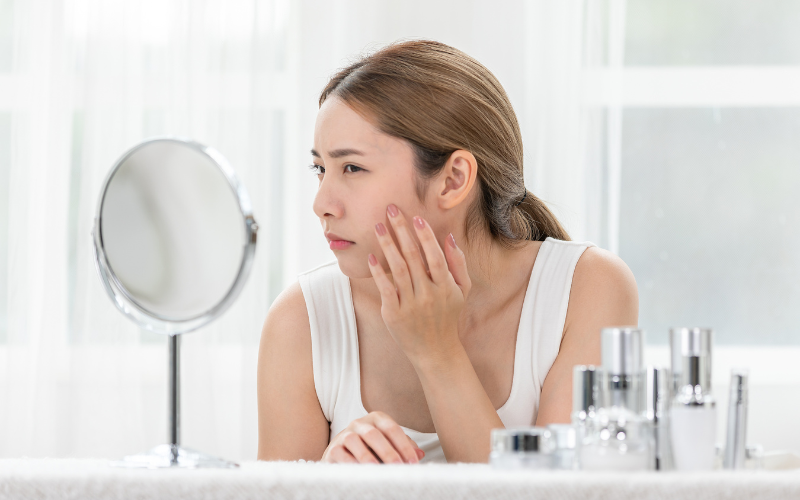
- Itching: Itchy skin is often a sign of dry skin.
- Flake: When the skin dries out, it can start to flake off in small pieces.
- Cracking: Dry skin can crack and bleed, especially on the hands and feet.
- Redness: Dry skin may look red or irritated.
- Roughness: The skin may feel rough or scaly.
- Scaliness: The skin may develop small, raised white or silver bumps. These are called scale patches.
- Tightness: The skin may feel taut or stretched.
- Dullness: The skin may lose its natural luster.
- Fine lines: Fine lines or wrinkles may become more visible.
- Rough patches: The skin may develop rough, scaly patches.
- Cracked skin: Cracks can form in the skin, especially on the hands and feet.
Treatment:

If you have dry skin, it is essential to take care of it to avoid further irritation and discomfort. With the proper treatment, you can keep your skin healthy and hydrated.
- Moisturizer: A moisturizer is the first line of defense against dry skin. When choosing a moisturizer, look for one that contains hyaluronic acid or glycerin. These substances aid in the retention of moisture in the skin.
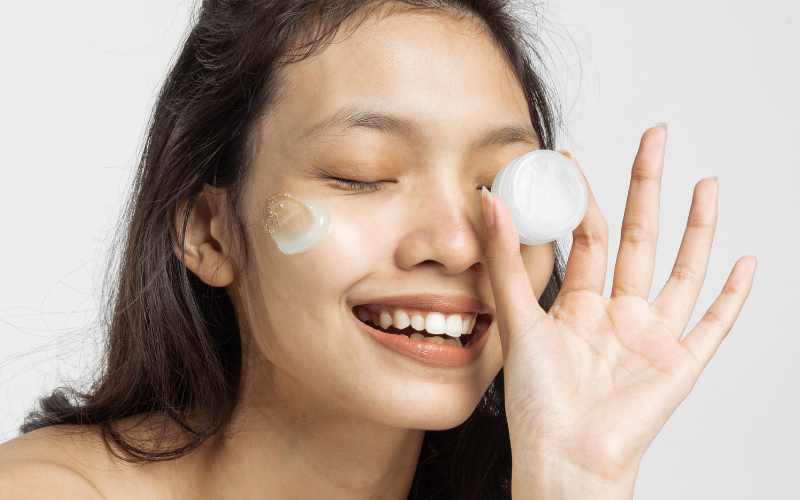
- Natural Oils: You can also look for products that contain natural oils, such as jojoba oil or coconut oil. These oils help seal moisture and prevent the skin from drying out.
- Reduce water exposure: Too much water can strip the skin of its natural oils, making it more prone to drying. When showering, use lukewarm water and limit your time to 5-10 minutes. After showering, gently pat your skin dry with a towel.
- Use a humidifier: If the air in your home is dry, it can contribute to dry skin. Use a humidifier in your house to help deal with this. This will add moisture to the air and help to keep your skin from drying out.
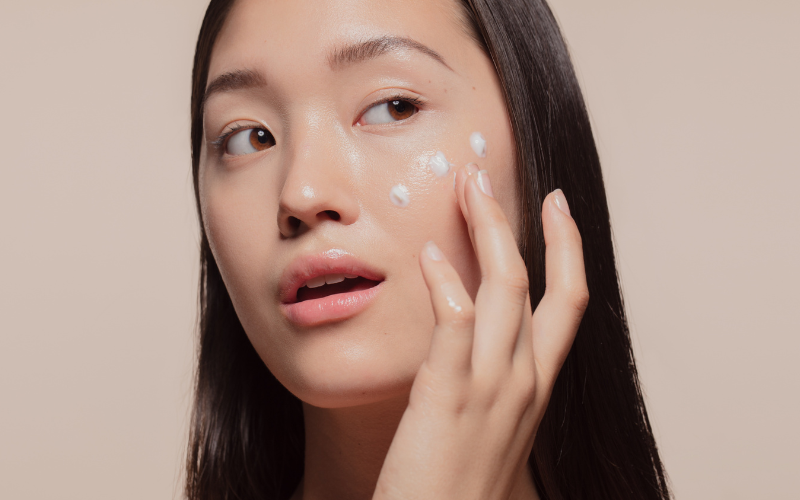
Dry skin is a common problem that a variety of factors can cause. However, it is usually not severe and can be treated with moisturizers and other skincare products. However, if you have any serious concerns, it is best to consult your doctor.
